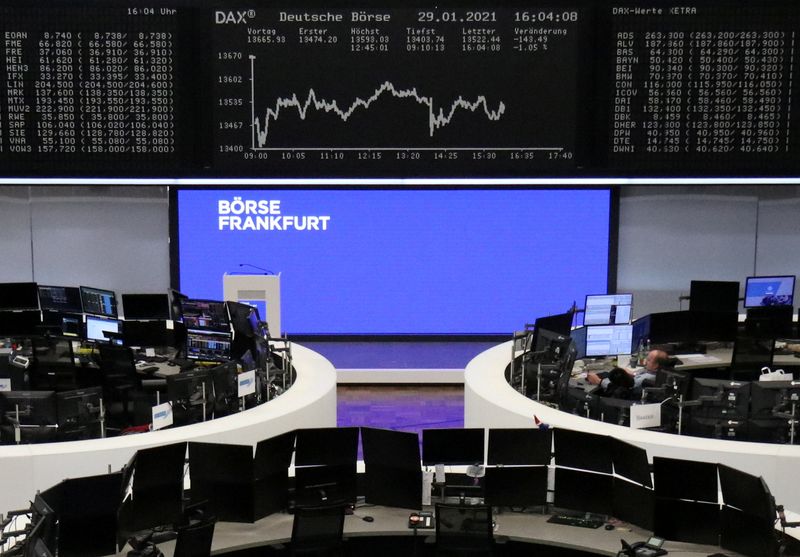(Reuters) – European stocks were little changed at the end of an upbeat week on Friday, with disappointing U.S. data highlighting the economic impact of the coronavirus pandemic, while in Germany industrial orders declined.
U.S. employment growth rebounded moderately in January but job losses were deeper than initially thought, bolstering the case for a large stimulus by President Joe Biden’s administration. [MKTS/GLOB]
“The prospect of more stimulus remain elevated,” said Edward Moya, senior market analyst at OANDA. New York. “Any profit-taking should be limited.”
The STOXX 600 posted its best weekly performance since November with a rise of 3.5% despite a lacklustre session on Friday, when gains in travel and leisure stocks, basic materials and banks were countered by losses in defensive sectors such as utilities, telecoms and healthcare.
Germany’s DAX index was flat after data showed orders for German-made goods fell more than expected in December, ending a seven-month streak of positive reports as fresh restrictions to contain the COVID-19 pandemic subdued demand from other euro zone countries.
“Today’s data shows that stricter lockdown measures since mid-December, as well as the Christmas break, have finally hit German industry … but at face value, this only looks like a temporary breather,” strategists at ING wrote in a note.
London’s FTSE 100 slid 0.2%, extending losses to a third straight session, as a higher pound weighed on the internationally focused firms on the index. [.L] [GBP/]
Investors also parsed earnings reports from European companies.
Sanofi SA gained 1.5% as the French drugmaker said it aimed to grow earnings per share this year after posting stronger-than-expected quarterly results.
Shares in Vinci were the biggest boost to the STOXX 600 after Europe’s biggest construction and concessions company beat full-year core profit forecasts, helped by some recovery in its contracting business. France’s CAC 40 rose 0.9% to close at two-week high.
Insurer Beazley logged its best day in eight weeks as a loss in 2020 took a back seat to a forecast to return to profit and bring back its dividend during the course of this year.
Finnish oil refiner Neste fell 6.4% to the bottom of the STOXX 600, after issuing a weak first-quarter outlook and unexpectedly cut its dividend.
(Reporting by Shreyashi Sanyal in Bengaluru; Editing by Shounak Dasgupta and Kirsten Donovan)
























